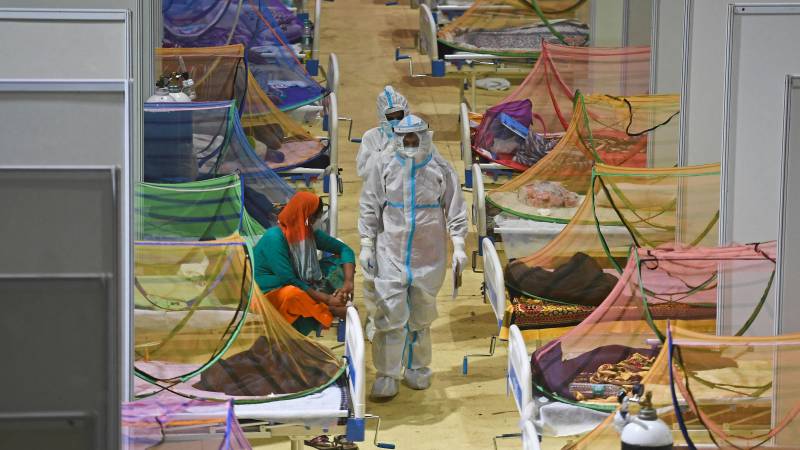AID is taking a multipronged approach — looking at four main aspects: oxygen shortages, supporting medical help desks, helping people stay home and promoting vaccine awareness. For daily wage earners, and migrant laborers, earning enough money and buying supplies in advance can be a challenge and nearly impossible in some cases.
“If not controlled in some form, it's going to really lead to a disaster of epic proportions,” Chidambaram said of COVID-19 in India. The impact is already being felt in neighboring Bangladesh, as the federal government bans vaccine exports.
While AID has existed for many years and is a reliable grassroots organization serving many parts of India, others in the Bay Area are focusing donations and assistance to specific marginalized communities, like the transgender community, or hijra.
“While we recognize that everybody is in panic and running around, our community is being left behind,” Anjali Rimi told KQED.
“They are starving,” Rimi said of the trans community in India. “Other communities still have access to the internet to be able to order delivery or be able to go out.”
Rimi is encouraging people to give to a specific GoFundMe, Save Indian Trans Lives: COVID Relief, organized by Parivar Bay Area.
“We have now over 6,000 trans folks that have reached out for help,” Rimi said.
In addition to Bay Area efforts, newer initiatives have popped up across the country in the last week to meet the immediate needs of those in search of doctors and medical attention.
Zain Alam, along with members of the South Asian diaspora mostly based in New York, started Doctors in Diaspora just last week to connect volunteer doctors virtually to people in India facing a medical professional shortages.
“We were really, just really, really struck by what we were hearing from our families and India about the total lack of a response on the part of the state there,” Alam said. They are urging doctors from the Indian diaspora to sign up, as well as doctors in less impacted locations in India. Based on availability, doctors are then matched with those needing assistance in India for remote consultations. Others interested in supporting the project are also welcome, and Alam said they’ve just had the first round of calls this weekend. But they will soon be using an app designed for the pandemic, which will allow doctors and patients to speak without the need to reveal personal contact information.
Alam said the initial calls between doctors and patients underlined how critical this work is. Though they estimated each call would be closer to 10 minutes, Alam said most were closer to 20 minutes. “There's just not enough medical professionals in India right now to speak to people — they don't have time to talk to anyone,” he said.
Alam and others involved in the project hope to take advantage of the wealth, knowledge and resources of the diaspora. "We have a very specific ability to speak to the needs in India right now," he said.
